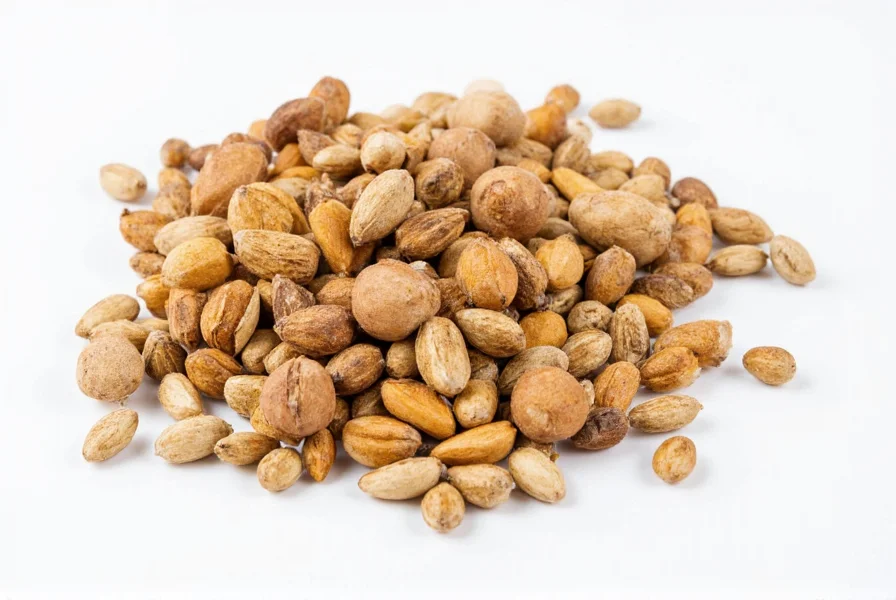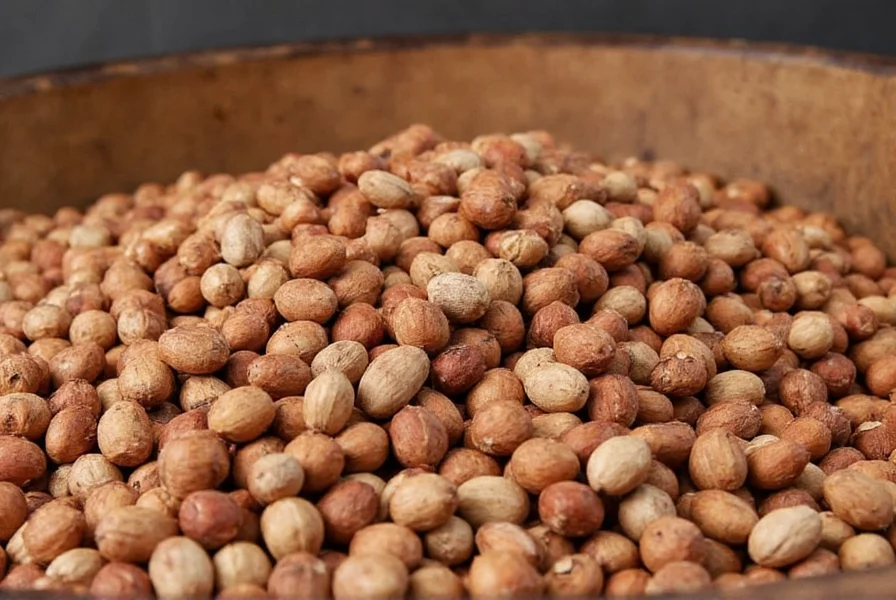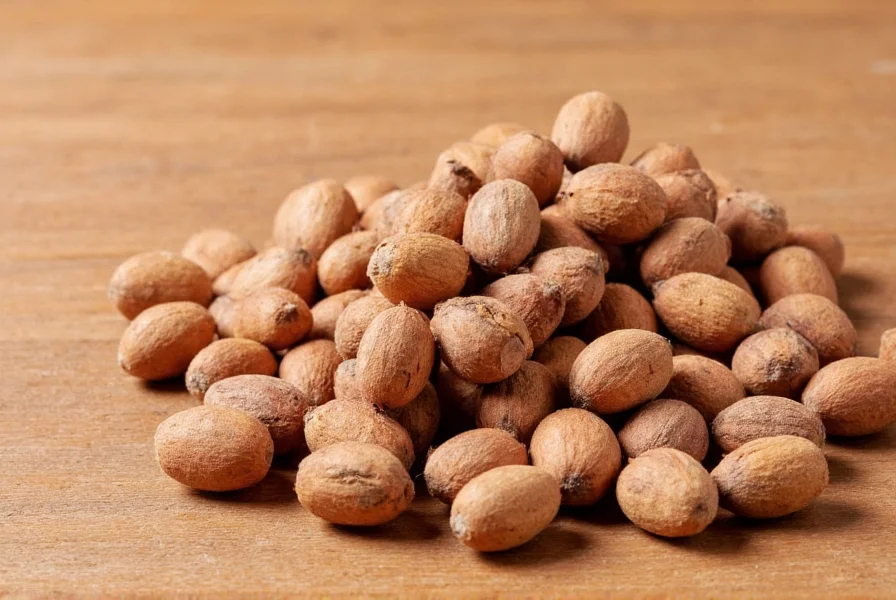Nutmeg remains one of the world's most historically significant spices, with companies dedicated to its production playing crucial roles in global trade for centuries. Understanding how these specialized businesses operate provides valuable insight into spice industry dynamics, quality standards, and sustainable practices that affect what reaches consumers' kitchens.
The Historical Significance of Nutmeg Trade
Nutmeg's journey from obscure tropical seed to globally prized spice began in the Banda Islands of Indonesia, the spice's original habitat. During the 16th and 17th centuries, European powers waged wars specifically to control nutmeg production, with the Dutch famously exchanging Manhattan for the nutmeg-rich island of Run in 1667. This historical context explains why modern nutmeg spice companies often emphasize their heritage and direct sourcing relationships with traditional growing regions.
Today's nutmeg industry has evolved significantly from these colonial beginnings. Reputable nutmeg spice companies now operate with transparent supply chains, working directly with farmers to ensure fair compensation while maintaining quality standards that would have been unimaginable during the spice's early trade history.
How Nutmeg Is Grown and Processed
Nutmeg trees require specific tropical conditions to thrive, typically growing in regions within 10 degrees north or south of the equator. The fruit resembles a small peach, with the nutmeg seed surrounded by mace (another valuable spice). Harvesting occurs when the fruit splits open naturally, revealing the crimson mace surrounding the brown nutmeg seed.
Processing methods significantly impact final quality. Traditional sun-drying remains preferred by premium nutmeg spice companies, though some use mechanical dryers for consistency. The drying process must be carefully monitored, as improper moisture levels lead to mold or flavor degradation. High-quality companies implement multiple quality checkpoints throughout processing to ensure only the best product reaches consumers.

Modern Nutmeg Industry Structure
Today's nutmeg market operates through several key channels:
| Industry Segment | Key Characteristics | Market Position |
|---|---|---|
| Small-Scale Producers | Family-owned farms, traditional methods, direct export | Niche markets, specialty stores |
| Mid-Sized Companies | Multiple farm partnerships, quality control systems | Supermarkets, food service suppliers |
| Large International Suppliers | Global operations, extensive quality testing, certifications | Major retailers, industrial food manufacturers |
Indonesia remains the world's largest producer, accounting for approximately 75% of global nutmeg supply, followed by Grenada (known as the "Island of Spice") and India. Understanding these geographical distinctions helps consumers identify authentic products, as nutmeg from different regions exhibits subtle flavor variations that discerning cooks can detect.
Quality Indicators in Nutmeg Products
When evaluating nutmeg spice companies, several quality markers distinguish premium suppliers:
- Whole vs. Ground: Reputable companies emphasize whole nutmeg for superior flavor retention, as ground nutmeg loses volatile oils rapidly
- Moisture Content: Quality nutmeg maintains 8-10% moisture level to prevent mold while preserving flavor compounds
- Color Consistency: High-grade nutmeg shows uniform light to medium brown color without dark spots
- Aroma Intensity: Premium nutmeg releases strong, sweet, and slightly peppery fragrance when scratched
- Certifications: Look for organic, fair trade, or ISO certifications indicating quality control standards
Understanding these quality factors helps consumers identify trustworthy nutmeg spice companies rather than falling for misleading marketing claims. The most reputable companies provide detailed information about origin, harvest date, and processing methods rather than making vague "premium" assertions.

Sustainability Practices in the Nutmeg Industry
Modern nutmeg spice companies increasingly prioritize sustainable practices as consumer awareness grows. Leading suppliers implement:
- Agroforestry systems that integrate nutmeg trees with other crops to maintain biodiversity
- Water conservation techniques during processing
- Organic farming methods to avoid chemical residues
- Fair compensation models that provide farmers with premium prices for quality
- Transparent traceability systems from farm to consumer
These sustainability efforts address historical concerns about exploitative spice trade practices. Companies demonstrating verifiable commitment to environmental stewardship and ethical labor practices represent the future of the nutmeg industry, offering consumers peace of mind alongside quality products.
Practical Guidance for Consumers
When selecting nutmeg products, consider these evidence-based recommendations:
- Purchase whole nutmeg whenever possible and grate it fresh using a microplane
- Store nutmeg in airtight containers away from light and heat to preserve volatile oils
- Check for harvest dates rather than relying solely on "best by" dates
- Look for companies providing specific origin information (island or region)
- Avoid products with added fillers or anti-caking agents that degrade quality
Understanding these practical considerations helps consumers make informed choices about nutmeg spice companies and products. The most reputable suppliers welcome questions about their sourcing and processing methods, recognizing that transparency builds trust in an industry with a complex historical legacy.
Conclusion
Nutmeg spice companies serve as vital links between tropical growing regions and global consumers, transforming a simple seed into one of the world's most cherished spices. By understanding their operations, quality standards, and industry challenges, consumers can make more informed choices that support sustainable practices while enjoying superior flavor. As the spice industry continues evolving toward greater transparency and ethical standards, these specialized companies play increasingly important roles in preserving both culinary traditions and environmental stewardship.
Frequently Asked Questions
What's the difference between nutmeg from Indonesia versus Grenada?
Indonesian nutmeg typically has a stronger, more pungent flavor profile with higher essential oil content (up to 15-30% compared to Grenada's 8-15%), while Grenadian nutmeg offers a sweeter, more delicate aroma. The soil composition and climate differences between these primary growing regions create distinct flavor characteristics that professional chefs can identify in blind tastings.
How can I verify if a nutmeg spice company uses ethical sourcing practices?
Look for third-party certifications like Fair Trade, Organic, or Rainforest Alliance, but also check if the company provides specific farm information, pays transparent pricing (not just "fair" claims), publishes annual sustainability reports, and maintains direct relationships with growers rather than using multiple intermediaries. Reputable nutmeg spice companies welcome inquiries about their sourcing practices and can provide verifiable details about their supply chain.
Why does whole nutmeg last longer than ground nutmeg?
Whole nutmeg preserves its essential oils within the seed's cellular structure, while grinding exposes these volatile compounds to air and light, causing rapid oxidation and flavor degradation. Studies show ground nutmeg loses up to 75% of its aromatic compounds within two weeks of grinding, whereas properly stored whole nutmeg maintains quality for 1-2 years. This explains why quality-focused nutmeg spice companies emphasize whole product sales.
What are common quality issues to watch for when buying nutmeg?
Watch for excessive moisture (indicated by musty smell or clumping), inconsistent color (dark spots suggest mold or improper drying), weak aroma (sign of age or poor storage), and added fillers like starch or anti-caking agents. Reputable nutmeg spice companies avoid these issues through proper drying techniques, quality control checks, and transparent labeling that specifies exact ingredients without unnecessary additives.
How do nutmeg spice companies ensure product freshness?
Leading companies implement harvest-to-market timelines, typically processing and shipping within 3-6 months of harvest. They use moisture-controlled storage facilities, nitrogen-flushed packaging for ground products, and batch tracking systems. The most transparent nutmeg spice companies provide harvest dates rather than just "best by" dates, allowing consumers to verify freshness based on actual production timelines rather than arbitrary expiration dates.











 浙公网安备
33010002000092号
浙公网安备
33010002000092号 浙B2-20120091-4
浙B2-20120091-4